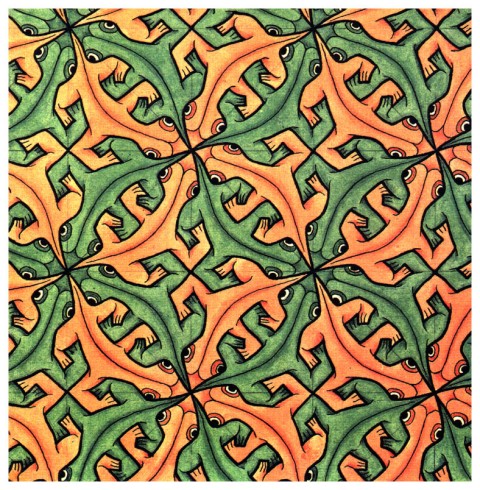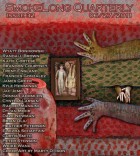What you have heard is true: we are falling in grades into the river. The gazebo will go first—its base will be unearthed and it will topple into the water like a coffee urn, like a groomsman at the reception. This architecture floats. This pavilion is an object of pleasure. The pagoda floats—the belvedere is lovely. The gazebo in the river has many names: how beautiful, how I shall gaze. The floors are uneven and what you have heard is true. Here: stand here. Now stand here: you are shorter now. They pressed your plastic feet into the icing of the cake—the bottom of your dress lined with a ring of white icing. Please do not lick the bottom of your flattened feet—do not dab at the skirt with your thumb.
What you have heard is true: there is nothing left here but salamanders and movement. There is the sight of wind if you could see wind, if you could see it sprawling out from our backs like tails, like turning your head too fast, like too much perfume. Above the cats and above the library and above the folly is an airplane spewing smoke as it crashes: an airplane with a banner trailing its body. It is telling you and I to eat something, it is telling us to call someone. All of the letters and numbers are reversed: here is an eight, here is a zero, here is a child’s S curled like a lizard, unraveled like a snake. I am watching you watch the water roll in and it is beautiful—you with the beginnings of a freckle and me with beginnings of little to be proud of, of sand not yet made into castles, places to live, a gazebo, an elsewhere. In the airplane is a man who knows nothing about these things—a man who sees horizons from anywhere but through glass: a plastic tree, a hollowed rock. Here is where we put the water in.
In the airplane are lights. We know this. We know this but choose not to look at what is left—there is something here; there is something here, too. We choose not to leave. We imagine being in a body inside of an airplane inside of a body—his body perhaps, watching his blood drift towards us, white and red cells, walls of stomach, a kidney here, romance and remembrance of the inside of eyes, what has been seen. We see things floating like orphans, like our brain reaching out to touch us, like an impossible wall. What you have heard is true: this happens when staring at too much blue or too much white or too much you—it all dances—snakes and liars, centipedes and rotting logs, hellbenders from torrents and sirens, viruses, maybe, with their fat heads and little legs speeding slowly like a child, like us when we were children, looking up at the sky like a lost limb at night or like me and you on an evening where we went east to just sit, nothing left but sitting—not moving—our blood the temperature of water: Asiatic and lungless. What you have heard is true: we do not follow the lights. I asked what we are looking for. I asked what we are looking for and you said nothing. Your body is leaving you. There is a chip there, there is a vessel—there is something inside of you that causes you to take your hair out, piece by piece, to leave patterns on your scalp, to pluck your eyebrows from out of your face, to take your eyelashes and hold them between your freckled fingers and blow them out into the river that has become the sea, to make a wish you say, you tell me to make a wish, make a wish, you say, make a wish you say again, make a wish for each punctuation mark, each comma, apostrophe, pause, possession, to make a wish because they always grow back—these pieces of self lost in the red clay that is left, that we cannot make wishes while they are still attached to our bodies, that we must speed up, we must double our wishes, we must double our options. I wish I could say a part of you floated in the air towards the propeller of something, a ceiling fan moving forward. I wish I could tell you these things, I wish what you have heard is true, that you are beautiful bald, that there are reasons for anything beyond living, that each piece of hair is actually something to hold onto after it has become detached from what you are and what is left. There is nothing here but rocks, you say, and things couldn’t be further from the truth—here is a pulse, here is a piece of glass. They will make statues of us from these rocks, I say. Our ears will be pressed to the ground. Our mouths will be open.



 A SmokeLong Summer 24!
A SmokeLong Summer 24!